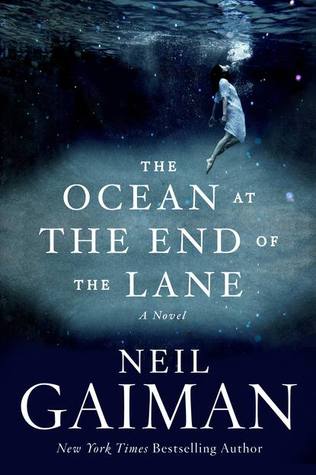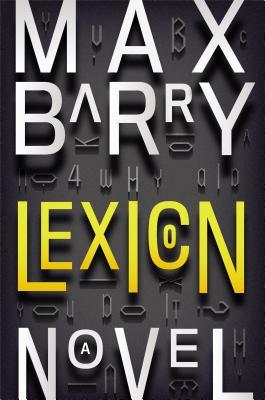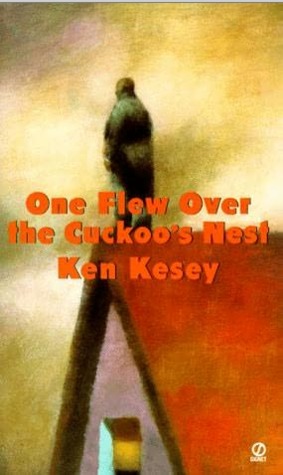To be perfectly honest, I’m terrible at accepting recommendations for books. No idea why, but this is a long term trait. For some reason, however, a bunch of people have asked me about books recently, as they search for new things to read. Given that I had time to cycle through a bunch of books in August and the planes I’ve been on since, here’s a walk through some of the highlights and low lights.
I was not an English major, however, so take the following for whatever it’s worth.
The Good
Angelmaker, Nick Harkaway
This was a good book. As reviews state, Harkaway occasionally gets a little self-indulgent with his prose (though not nearly so much as in his debut the Gone Away World) and would benefit from a stronger willed editor – his father, perhaps? – but the entire package is original and entertaining. It borrows from the Stephenson tradition of everyman/woman types inadvertently placed in positions of historical significance, but is distinct enough in plot and direction so as to not be derivative.
The Ocean at the End of the Lane, Neil Gaiman
The third Gaiman book I’ve read, it’s consistent with the others in its ability to seamlessly transit between reality and, for lack of a better term, magic – the kind borrowed from older Celtic traditions, as opposed to more Rowling-esque modernities. Gaiman’s real success here is the perspective; relayed (for the most part) from the viewpoint of a child, it captures the isolated confusion and incomprehensible choices of childhood with ease. It’s a quick read, but worth the time.
The Martian, Andy Weir
Given the build up around this book, there’s a good chance you’ve heard this story before, but just in case: this is a book that could not find a publisher and ended up being optioned as a movie with Ridley Scott and Matt Damon rumored to be attached. In between, it attracted a cult following because the book is just brilliantly executed. Chronicling the life and times of a stranded astronaut, the technical details were rendered well enough that I assumed the author worked in space flight (he didn’t), but the real highlight of the Martian is its humor. I’d avoid reviews simply because they tend to be a bit spoilerish, but if you’re looking for something to read I’d put this at the top of your list. It’s excellent.
American Gods, Neil Gaiman
Finally got around to this in August, and while the foreward claimed the usual reaction was love or hate, I fell in between. Gaiman’s trademark magic is at work, with a narrative that pits old world traditions against new world addictions. The path meanders at times, but overall the plot moves and its conclusion is worthy of the build up. Still, the serious moral ambiguity of pretty much everyone involved makes it difficult to pick favorites, which leads in my case to a lessened attachment to the work as a whole. Overall though, it’s a tremendously creative book and worth the read.
The Wind-Up Bird Chronicle, Haruki Murakami
There’s a reason that this book sits up near the top of so many top 100 lists: it’s really, really good. The atmosphere is as thick in Wind-Up Bird Chronicle as in VanderMeer’s Southern Reach trilogy, but Murakami answers just enough questions to satisfy the reader, while leaving open huge areas for interpretation. The plot is seemingly simple – where is the protagonist’s wife? – but becomes fractally strange as events move forward. If I had one quibble, it’s that the characters, particularly on the periphery, occasionally lack depth, but some of that undoubtedly is translation. Ultimately, though, that’s a minor point. The overall package is well worth your time.
The Magician’s Land, Lev Grossman
The conclusion of Grossman’s Magicians trilogy, this brought things full circle for the protagonist of The Magicians. For those that missed the first two books, you can think of them as being set in a cynical, world-weary version of the Harry Potter universe. Magic works, but creates as many problems as it solves for its practitioners. Without giving anything about the plot away, this third book revisits common ground in terms of landscape and the people who occupy it, so if you’re invested in the characters, you’ll like this. And the conclusion is satisfying, if somewhat ambiguous. All in all, a good conclusion to a good series.
Lexicon, Max Barry
This novel starts off with a bang and in the beginning, you’re likely to be as confused about what’s going on as the first time you watched the Matrix. If you’re patient, however, Barry creates a world that borrows something from the aformentioned Grossman’s Magicians and Stephenson’s Snow Crash. It’s unique, fast-paced and entertaining. The confusion eventually wears off, and what’s left is inventive, often comical and well worth your time even if the ending is a bit neat.
The Meh
One Flew Over the Cuckoo’s Nest, Ken Kesey
I somehow missed this in school, and never saw the movie, but this had less impact than I expected given the book’s reputation. It’s well executed, but it may just be that I’m a square content to be a cog in the machine, because the central theme of rebelling against authority didn’t do much for me. That being said, the bigger picture isn’t necessary to enjoy the story for the cast of characters it introduces and the decisions they make. Not sure I’d recommend it, but it’s worth reading, if only to remember that the World Series was once the big deal.
Mr. Mercedes, Stephen King
To provide some context for the following comments: I consider myself a Stephen King fan. He was one of my favorite authors growing up, and unlike many of his bestselling counterparts, I believe he takes the craft of writing seriously. He’s not Gabriel Garcia Marquez with the pen, true, but who is? At his best, he’s excellent at capturing place and time, and is always willing to put his characters – good, bad or indifferent – in harm’s way. Oh, and I live in Maine, so naturally I like King. I say all of this because hating on King is fashionable in many literary circles.
All of that said, Mr. Mercedes didn’t do much for me. I’m not among those who say that King’s lost his fastball – I thought Joyland was great – but it had some real issues. First, the characters were borderline cliches: depressed girl, precociously brilliant kid, suicidal ex-cop. Second, the love interest was…not plausible, and that wasn’t the only unlikely behavior. And so on. This wasn’t a bad book, exactly, but it’s certainly not at the top of my list of King novels to read.
The Ugly
Acceptance, Jeff VanderMeer
Did not enjoy this. Actually, that’s not being honest: I disliked this book intensely. In fact, this book is one of the reasons I bothered to write all of this up in the first place, because the mainstream reviews were – to me, at least – terribly misleading. I didn’t want anyone else to dive into these without a warning.
The intended conclusion of a trilogy about a doomed region known as the Southern Reach, Acceptance cycles us back to characters introduced in the first two novels. Sort of. Probably. Billed variously as Lost meets HP Lovecraft with a dash of Nic Pizzolatto, the one thing I’ll give VanderMeer is that he does atmosphere very well. The first book of the trilogy in particular, Annihilation, is legitimately creepy. The problem is that the rest of the trilogy then completely fails to deliver on the set up. The linked NPR review claims that VanderMeer is:
Trying to tell a story that’s not about knowing and understanding (which is what all books by rational, non-insane people are basically about), but about the impossibility of knowing and the failure of human language and intelligence to encompass something that is completely and totally alien to us.
To me, that’s a cop out. It’s not that every loose end needs to be neatly tied off – see the review for the Wind-Up Bird Chronicle – but I found the complete lack of answers – any answers whatsoever – profoundly disappointing. Selling that as somehow brilliant seems like an excuse after the fact. But even if you accept the above premise, that VanderMeer’s brilliance is about depicting some sort of post-modern unknowability, well, how satisfying is that? Does setting everything up, then saying “well, we can actually never know what any of this is or means” sound like an enjoyable read to you? If so, this is the series for you.
By this third book, I was reading only because I’d invested the time in the first two. Throw in characters not worth investing in and rooting for along with a truly baffling decision to render one entire narrative in the third person, and it was a real slog.










2 thoughts on “Books: Fall 2014”